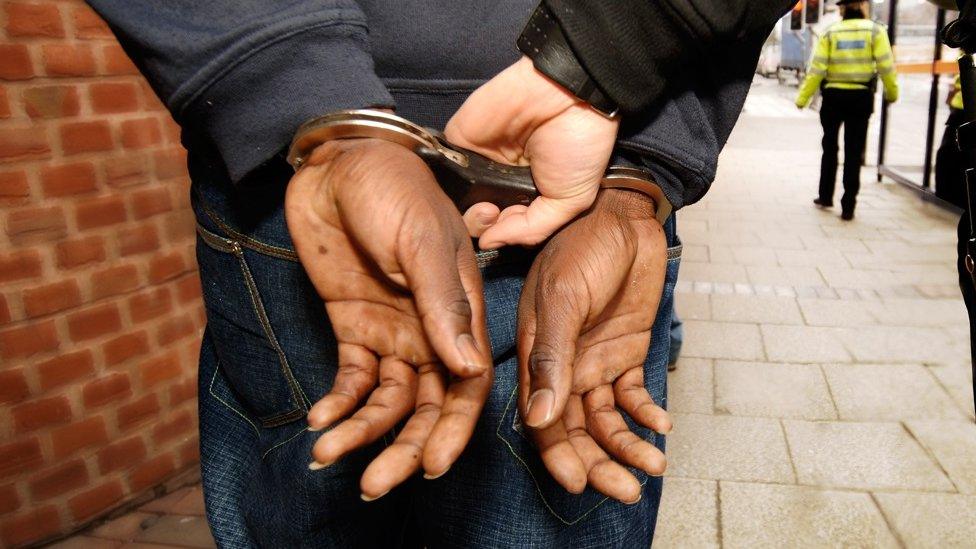George Floyd death: More work needed to tackle racism says Met officer
- Published
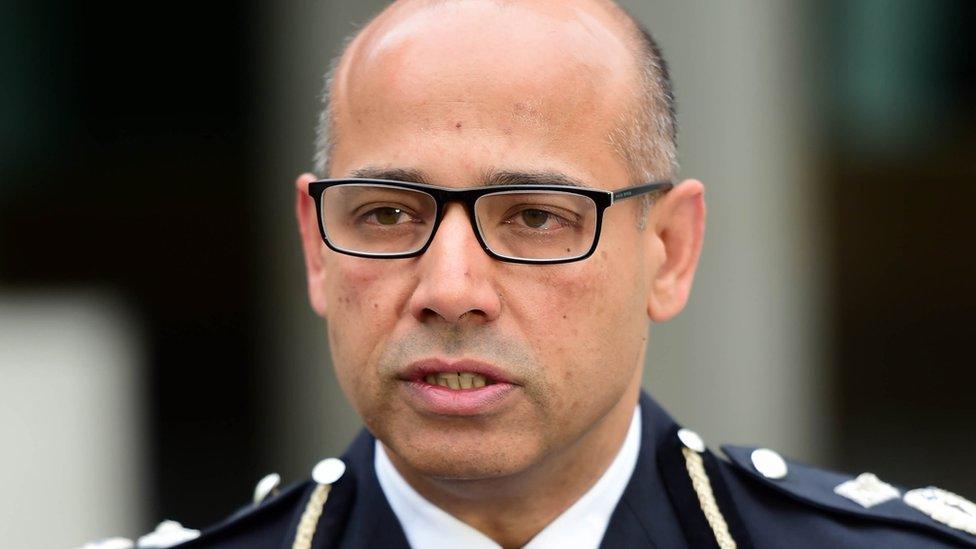
The UK's most senior black and minority ethnic police officer has urged forces to "stand up to racists, inequality and injustice".
Anti-racism protests have been held across the UK in the wake of George Floyd's killing in the United States.
In a message to officers, external, Met Police Assistant Commissioner Neil Basu said he was "horrified" by Mr Floyd's death.
But he said it could be "a moment for change" similar to the Macpherson Inquiry into Stephen Lawrence's murder.
However, in an interview with The Guardian, external, Mr Lawrence's father Neville said police forces had fallen "way, way short" of making reforms promised after the 1999 inquiry and remain "institutionally racist".
Black people are still treated as second-class citizens "not only in this country but all over the world", he added.
The death of 46-year-old black man Mr Floyd, in Minneapolis, after a white police officer was filmed kneeling on his neck, triggered an international outcry and has sparked days of protests in cities across the UK.
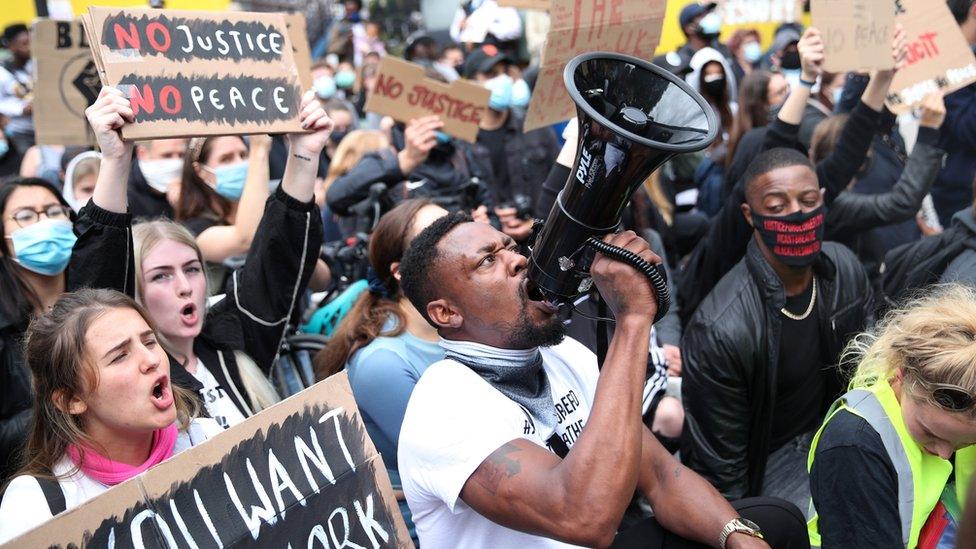
Protests have been held across the UK since the weekend
Demonstrations have been largely peaceful, but there were clashes in London on Saturday, and a statue of Winston Churchill was vandalised.
In Bristol, demonstrators toppled a statue of slave trader Edward Colston and threw it into the harbour.
Home Secretary Priti Patel has condemned a "lawless minority of protesters" who "regrettably turned to violence" while the prime minister urged the country to "work peacefully, lawfully" to defeat racism and discrimination.
Mr Basu said "the overwhelming majority" of protesters were "showing solidarity with George and what his death represents" and should be listened to.
The protests on both sides of the Atlantic have been based on "anger directed not just at police brutality but the racial bias built into the very fabric of our institutions and society", he added.
Mr Basu said there had been progress since the Macpherson Inquiry but "despite how far we have come we must confront the fact that with many of our communities - especially the black community - we still have a long way to go".
- Published3 June 2020
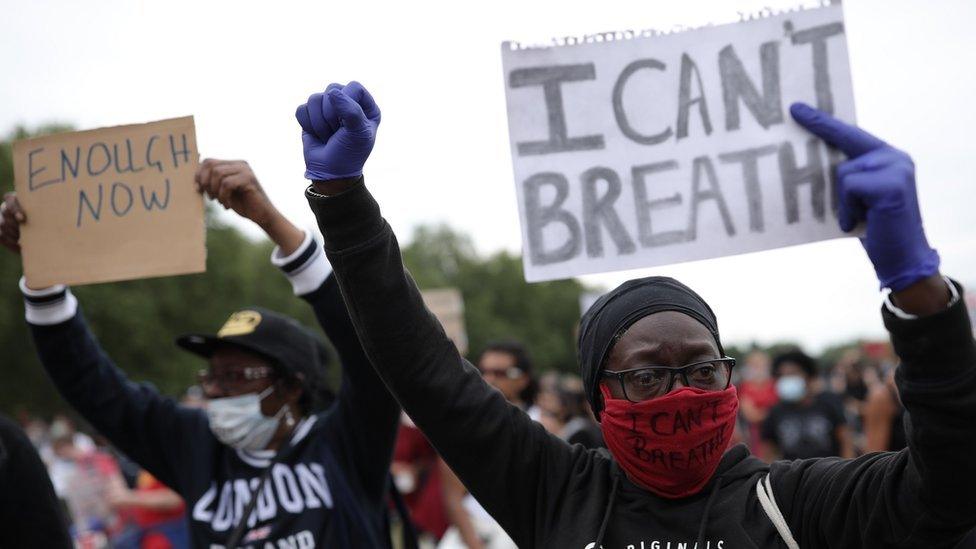
- Published19 February 2019
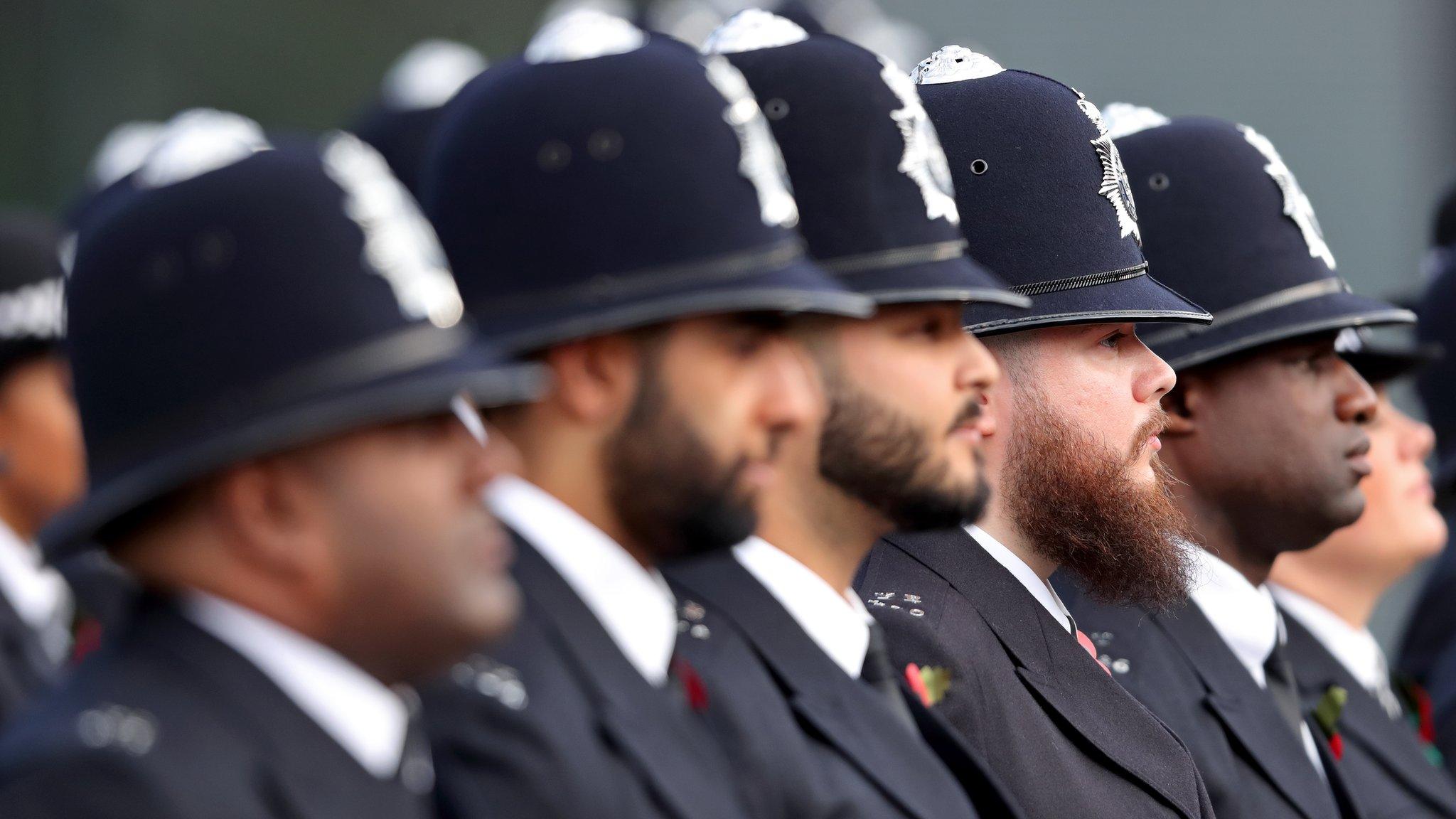
- Published17 January 2018
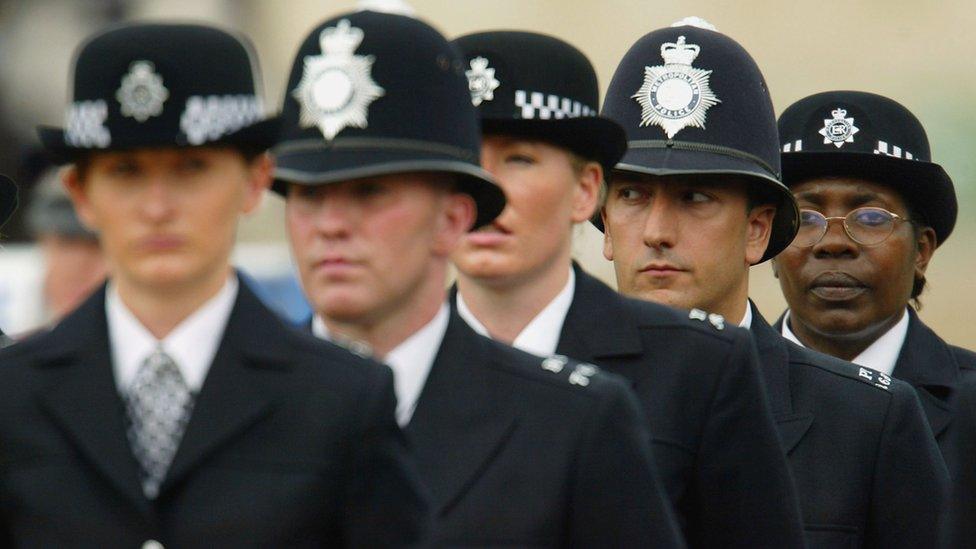
- Published8 September 2017
